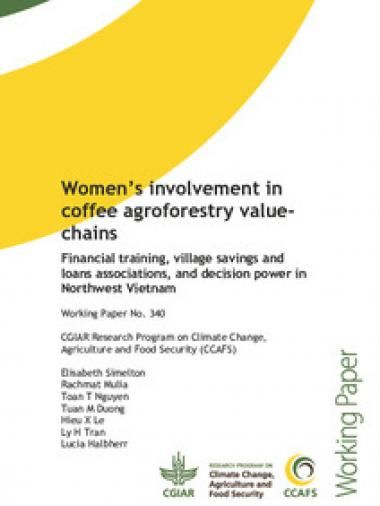Globally, in the coffee sector and smallholder agriculture in developing countries, there is a distinct gender gap in key factors that enable women’s active participation in and contribution to the coffee value chain and in farm and domestic decisions, such as decisions over credit, agricultural inputs, and training opportunities and division of labor and time. This study assesses Village Savings and Loans Associations (VSLA) impacts and related training on gender equality and women’s access to coffee markets in an ongoing coffee- project in northwest Vietnam. All 169 women in this survey received gender equality and finance training, with one group being members of a VSLA and taking out small loans. With Women’s Empowerment in Agriculture Index (WEAI), women rated their perception of their decision-making power over a range of 18 tasks related to household and agricultural responsibilities and use of income and social activities over 18 months.
DOI:
https://hdl.handle.net/10568/111055
Puntuación Altmetric:
Dimensiones Recuento de citas:



















